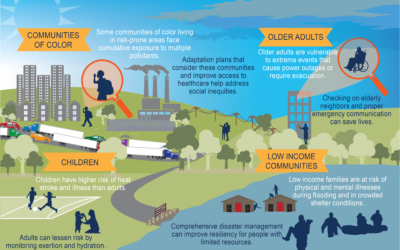
SOURCE: VIA FLICKR
The act of altruism, that is, the quality of unselfish concern for the welfare of others, has always been encouraged in the society. While volunteering can offer great help to people in need and contribute to the creation of better society, the benefits of helping others may in fact generate more benefits for the people who gives out. Just as French-German philosopher Albert Schweitzer says, “the only really happy people are those who have learned how to serve.”
Scientific studies have proved a strong connection between practicing philanthropy and greater physical and emotional health. Such benefits include longer lifespan, greater happiness, reduced stress, and lower blood pressure. Check out the following six scientifically-proved advantages of servings others and how the act of goodness can become a win-win situation for you.
Generate Happiness From Helping People
According to Stephen G. Post, founding director of the Center for Medical Humanities, Compassionate Care, and Bioethics at Stony Brook University School of Medicine in New York, generosity is the simplest way to live a happier life. Studies shows that when people are helping others, the mesolimbic pathway in our brain lights is activates, which doles the happiness chemicals like dopamine, endorphins and oxytocin – thereby generating the so-called feel-good effect. What is more surprising is that even the thoughts of helping others can generate the same response – by viewing the brain with MRI technology during moments of altruistic or selfless behavior, the scientists discover that the same brain pathway will be triggered when people are thinking about doing good.
Increase Lifespan
In a mate-analysis review of previous research studies in 2003, the researchers at Stony Brook and Arizona State University confirmed that even when medical history, age, socioeconomic status, social support network, marital status, and physical/emotional health were taken into consideration, volunteering appears to reduce risk of death by 25 percent! The result is consistent with a previous study conducted in 2003 at the University of Michigan, which revealed that elders who reported giving support to others had significantly reduced mortality risk, no matter whether such support was operationalized as instrumental support provided to neighbors, friends, and relatives or as emotional support provided to a spouse.
Lower blood pressure
A 2013 study published on the Journal of Psychology and Aging revealed that adults over 50 who were volunteering for at least 200 hours in the past year at the time of their first interview were 40 percent less likely to have developed hypertension four years later than non-volunteers. Although the exact mechanism of how serving other can affect blood pressure is not fully understood, the researchers believed the impact may due to the stress-reducing effects of being active, social and altruistic. As the coauthor of the study Rodlescia Sneed explained, volunteering can offer us an opportunity of building more social connections with people who cares about us and thereby motivate to take care of ourselves better.

SOURCE: VIA FLICKR
Reduce depression
In a study of data from the Americans’ Changing Lives Survey, the researchers found that people who volunteered in 1986 reported in 1989 that they had higher levels of happiness, life-satisfaction, self-esteem, physical health, and lower rates of depression than non- volunteers. While depression may prevent people from volunteering, studies shows that sometimes it can become a drive for older adults to volunteer so as to reduce the depression and anxiety from roles losses and losses of relationships.
Boost your career
In the book “Halo Effect: How Volunteering to Help Others Can Lead to a Better Career and a More Fulfilling Life”, John Raynolds, president and CEO of the National Peace Garden Foundation in Washington, D.C., talks about how helping others can save you from the feeling of depression and unfulfilment at work and make you will feel more happy, confident and energetic, which will of course spread to every single aspect of your life and make you completely a different person. That’s true. In the 2006 General Social Survey, in which 27,000 adults were asked about job satisfaction and general happiness, people with jobs that involve helping or serving others generally responded with more satisfaction with their work and more happiness than those whose jobs do not permit altruistic gratification.
Eager to reap the benefits of helping others now? Check out the article here to see how you can do good for others even you have little extra time or money!




0 Comments